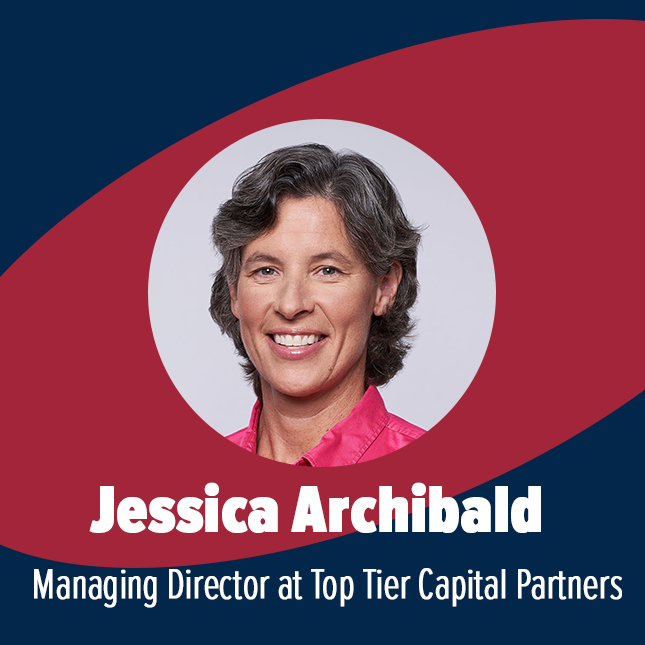Exciting global pandemic-era innovation

 From the lens of a global venture capital investor, we at Top Tier Capital Partners (“TTCP”) believe that the global venture capital industry remains strong, and innovation is a consistent part of the global economy. Innovation centres are forming around the world, for technology, healthcare, and the intersection of the two. With the new normal of a semi-remote workforce, the spread of globalization is increasing, creating innovation hubs in places the industry never saw before. With sectoral and geographic shifts in trends, valuations will also rise and fall. These market cycles are part of what makes the industry constantly innovate itself, bringing new opportunities. Uncertainty often creates opportunity, so we expect some very interesting new areas of investment to come to the venture industry going forward.
From the lens of a global venture capital investor, we at Top Tier Capital Partners (“TTCP”) believe that the global venture capital industry remains strong, and innovation is a consistent part of the global economy. Innovation centres are forming around the world, for technology, healthcare, and the intersection of the two. With the new normal of a semi-remote workforce, the spread of globalization is increasing, creating innovation hubs in places the industry never saw before. With sectoral and geographic shifts in trends, valuations will also rise and fall. These market cycles are part of what makes the industry constantly innovate itself, bringing new opportunities. Uncertainty often creates opportunity, so we expect some very interesting new areas of investment to come to the venture industry going forward.
While locations such as Shanghai, Silicon Valley and London are known for start-up ecosystems, many other cities and countries are spawning new generations of entrepreneurs and success stories. Singapore, Indonesia, Vietnam, India and elsewhere in Southeast Asia are certainly on the map in terms of their fair share of successful companies that make up top-performing venture funds. Looking elsewhere in the world, in the United States, the California epicentre for start-ups moved from Silicon Valley to San Francisco as founders wanted to live in the city, not the suburbs. Both Texas and Florida are now very important regions for venture capital for the above reasons just as well as more favourable tax situations. Europe is no different, with almost every country in the region participating in the rise of unicorns of late. Geographic barriers are minimal these days.
One of the opportunities that came out of the uncertainty surrounding the pandemic is the remote workforce. Founders no longer must worry about recruiting talent in competitive technology centres where salaries are expensive, and talent is scarce. Instead, these founders can now recruit the best talent worldwide. Not only does this decrease costs and increase access to talent, but it also spreads the learnings and entrepreneurial spirit far and wide. If any industry can thrive in this type of market, it is the innovative people who make up the global venture capital industry.
Pre-pandemic, large companies like Google, Meta, Oracle, Twitter and Salesforce all competed for the top software engineers. Salaries were sky-high. Employee expectations were high. Private companies were forced to raise large rounds to support these trends. That changed almost overnight in early-2020. Employees were sent home. They used technology to replace in-person offices across communication, file storing, training, recruiting and even socialization. The venture industry still flourished and had one of the best years that year, followed by another historic year in 2021. Employees, for the most part, were much happier but they also found they had time to think. Time to innovate. Time to create new ideas. We are better as a result.
With changes in the economy, though, also comes changes in prices, or in our case, valuations. As with any investment, an investor might make money or lose money. Across the venture industry, valuations are under pressure, but in our view, the quality, diversity and drive of founders and entrepreneurs has never been stronger. The good companies often survive. The underperforming companies often don’t survive, but that is a good thing as the industry can’t, and shouldn’t, support every company formed. Based on our observations, loss ratios, or the percent of invested capital that is lost, hovers around 20% for most early-stage venture funds, and 20% of the capital returns 80%. That means 20% of the capital is lost but 20% of the capital also delivers most of the returns, leaving the other 60% to still return 20% of the fund. We need fluctuations in valuations to serve as a governor for quality.
Global innovation has never been stronger. The diversity of innovation centres brings a breadth of perspectives that are critical for our global consumer network. New locations are also increasing the total supply of talent faster than the demand for talent, which is a good thing. Consumers use technology every day on their phones without knowing, or caring, where it was developed or funded. This allows companies to grow revenues at meteoric rates as the global spread of user adoption takes off. Valuations were high, but not always expensive. These valuations may rise or fall, but our belief is that the companies created today at lower valuations will look to exit in several years’ time when we will arguably be in a different part of the market cycle. Markets are hard to time. Today is no different, regardless of the region.
__
Under the spotlight: Jessica Archibald
Jessica was the driving force behind establishing the Investment Team’s database, The Mine, and the Firm’s data analytics team. Jessica’s analytical vision is to leverage data to optimize portfolio construction, enhancing risk-adjusted returns for Top Tier’s investors. Her focus on data has helped the Investment Team balance the promise that frontier technologies offer with the financial returns LPs desire. Jessica joined Top Tier’s predecessor firm Paul Capital in 2005. Prior to joining Top Tier, Jessica was part of the investment team at Care Capital LLC, a venture capital firm specializing in biotechnology. Before that, she spent five years at Salomon Smith Barney.
For more expert insights from Jessica Archibald and other industry leaders, be sure to join us at SuperReturn Asia >>